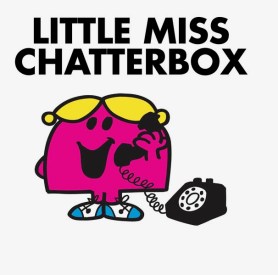How Do You Define Yourself?
I study my hands like a mother studying her baby’s breathing after their first full night of sleep. I look at the endless freckles that cover the backs of my hands and imagine the burning African sun drilling its heat into the epidermis. Thirty-eight years of living at the tip of Africa takes a toll on skin genetically designed for the cool, misty climes of Scotland.

When we moved to the USA, people asked if I regretted not moving here sooner, say when we were in our twenties and without children. It definitely would have been so much easier, but I always answered no. Being born, raised, and living in South Africa until I was 38 defined me as a person and informs so much of my life.
As usually happens, this started me thinking about what does it really mean when someone says this defines me.
The word define means the essential qualities of something / the meaning of something, so how do each of us decide what it is that defines us? Off the top of my head, I jotted down a list of words that I believed defined me. But with a closer look, I realized some of them were more strengths and weaknesses than essential qualities.
This reminded me of a management course I attended in the late ’80s. We were asked to write down our strengths and weaknesses. As the only woman on the course (as I said, it was the 80s!), I was called on first, which meant I couldn’t use the answers of the other—much older—managers to guide my response.
I listed my main weakness as being “not good at Maths” (Math as I now refer to it.) It seemed a risky choice as my position required I draw up budgets, allocate money to charities, and so on, but under pressure, I couldn’t come up with something better.

After we read out our responses, the leader asked us one by one to justify why we thought we were weak in that area, what proof did we have. The fascinating thing was when challenged, many of us struggled to come up with a real response. When we dug deeper, it turned out most of us had been told we were weak in that area or had been assigned that quality as children, and then went on to live up to that definition. “Shy, talks too much, bad at sports, not approachable,” etc.
I studied my list of defining qualities and saw the overlap. It contained several sweeping generalizations that others told me as a child. These ‘labels’ had to be examined further.
Take a minute and write down five to six words that you think define you.
Look at the list and cross out anything that describes your work/what you do or what you have. Studies show when asked what defines you, about half of all respondents said, “I’m from his state, I do this job, I now live in this kind of home in this town, I drive this car.”
Maybe we fall back on this because it is the classic small-talk, cocktail party, ice-breaker. “Hi, I’m Sam, originally from Montana, now I work at Big Bucks law firm, and I live on 5th Avenue.”
If we can’t define ourselves by our jobs or towns, then how do we define ourselves? I looked back at my list, which was now quite short. It came down to the values I embrace, and the beliefs I hold, those elements of myself that remain largely unchanged.

On my list, curiosity was one of those elements. I was curious as a child, and I am still curious as an adult. I want to learn why things are the way they are, why people behave the way they do. I love listening to other people’s experiences, learning about their point of view, and why they hold it. I am that person who will happily look at your vacation photos. As a child, I was told, I talked too much and found myself parroting this back well into adulthood. Oh, forgive me, I talk too much, I’m a real chatterbox.
It embarrassed me as it implied a lack of control. I was well into my forties when I thought about that label. The reason I do love to talk is that I am interested in the world! I started paying attention to my conversations and found out that a lot of my “talking” was questioning, probing, and encouraging others to tell me about themselves.
From feeling a bit silly about talking-too-much, I now embrace it as a manifestation of my innate curiosity. I value being curious because it is important to me to look outside myself and learn about the world around me.
Look back at your list. Still the same?
There are many ways we define ourselves: the way we treat people, our faith, even our personal style, but we can also accept that these may evolve. Something you believed as a child may look very different as an adult. Is this where “inform” comes in?
Although I always claimed that growing up in South Africa defined me, I now think it is more accurate to say it informs every aspect of my life. I am so much more than just someone born in South Africa of Scottish parents who lived through the worst of apartheid, but it will forever color my thinking.
I don’t have a perfect answer, but I do know we alone can decide what defines us. But, as importantly, we can let our values and beliefs be open to examination.
Leave a Reply